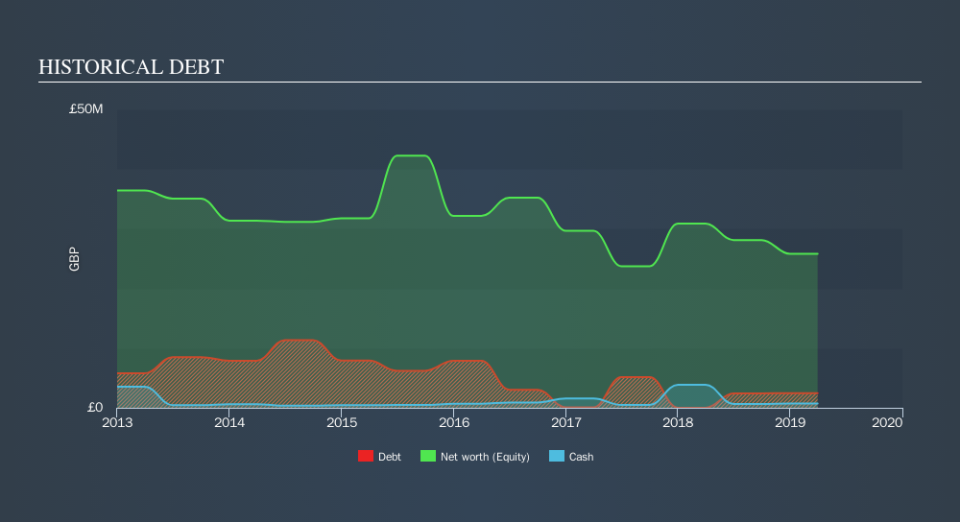Is Hornby (LON:HRN) A Risky Investment?

Legendary fund manager Li Lu (who Charlie Munger backed) once said, 'The biggest investment risk is not the volatility of prices, but whether you will suffer a permanent loss of capital. So it might be obvious that you need to consider debt, when you think about how risky any given stock is, because too much debt can sink a company. We note that Hornby PLC (LON:HRN) does have debt on its balance sheet. But should shareholders be worried about its use of debt?
Why Does Debt Bring Risk?
Generally speaking, debt only becomes a real problem when a company can't easily pay it off, either by raising capital or with its own cash flow. If things get really bad, the lenders can take control of the business. However, a more common (but still painful) scenario is that it has to raise new equity capital at a low price, thus permanently diluting shareholders. Of course, the upside of debt is that it often represents cheap capital, especially when it replaces dilution in a company with the ability to reinvest at high rates of return. When we examine debt levels, we first consider both cash and debt levels, together.
Check out our latest analysis for Hornby
What Is Hornby's Debt?
As you can see below, at the end of March 2019, Hornby had UK£2.45m of debt, up from none a year ago. Click the image for more detail. On the flip side, it has UK£704.0k in cash leading to net debt of about UK£1.75m.
How Healthy Is Hornby's Balance Sheet?
According to the last reported balance sheet, Hornby had liabilities of UK£7.52m due within 12 months, and liabilities of UK£711.0k due beyond 12 months. Offsetting these obligations, it had cash of UK£704.0k as well as receivables valued at UK£6.14m due within 12 months. So it has liabilities totalling UK£1.39m more than its cash and near-term receivables, combined.
Since publicly traded Hornby shares are worth a total of UK£36.3m, it seems unlikely that this level of liabilities would be a major threat. However, we do think it is worth keeping an eye on its balance sheet strength, as it may change over time. The balance sheet is clearly the area to focus on when you are analysing debt. But you can't view debt in total isolation; since Hornby will need earnings to service that debt. So when considering debt, it's definitely worth looking at the earnings trend. Click here for an interactive snapshot.
In the last year Hornby had negative earnings before interest and tax, and actually shrunk its revenue by 8.1%, to UK£33m. We would much prefer see growth.
Caveat Emptor
Importantly, Hornby had negative earnings before interest and tax (EBIT), over the last year. Its EBIT loss was a whopping UK£4.7m. When we look at that and recall the liabilities on its balance sheet, relative to cash, it seems unwise to us for the company to have any debt. Quite frankly we think the balance sheet is far from match-fit, although it could be improved with time. However, it doesn't help that it burned through UK£5.6m of cash over the last year. So in short it's a really risky stock. For riskier companies like Hornby I always like to keep an eye on the long term profit and revenue trends. Fortunately, you can click to see our interactive graph of its profit, revenue, and operating cashflow.
When all is said and done, sometimes its easier to focus on companies that don't even need debt. Readers can access a list of growth stocks with zero net debt 100% free, right now.
We aim to bring you long-term focused research analysis driven by fundamental data. Note that our analysis may not factor in the latest price-sensitive company announcements or qualitative material.
If you spot an error that warrants correction, please contact the editor at editorial-team@simplywallst.com. This article by Simply Wall St is general in nature. It does not constitute a recommendation to buy or sell any stock, and does not take account of your objectives, or your financial situation. Simply Wall St has no position in the stocks mentioned. Thank you for reading.

 Yahoo Finance
Yahoo Finance 
